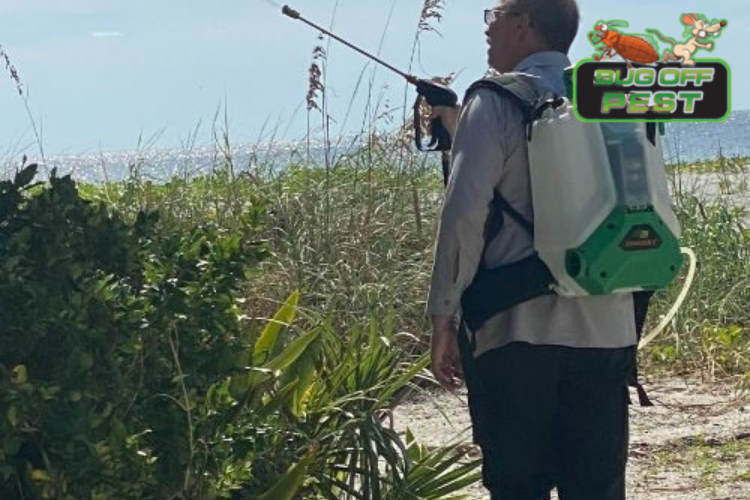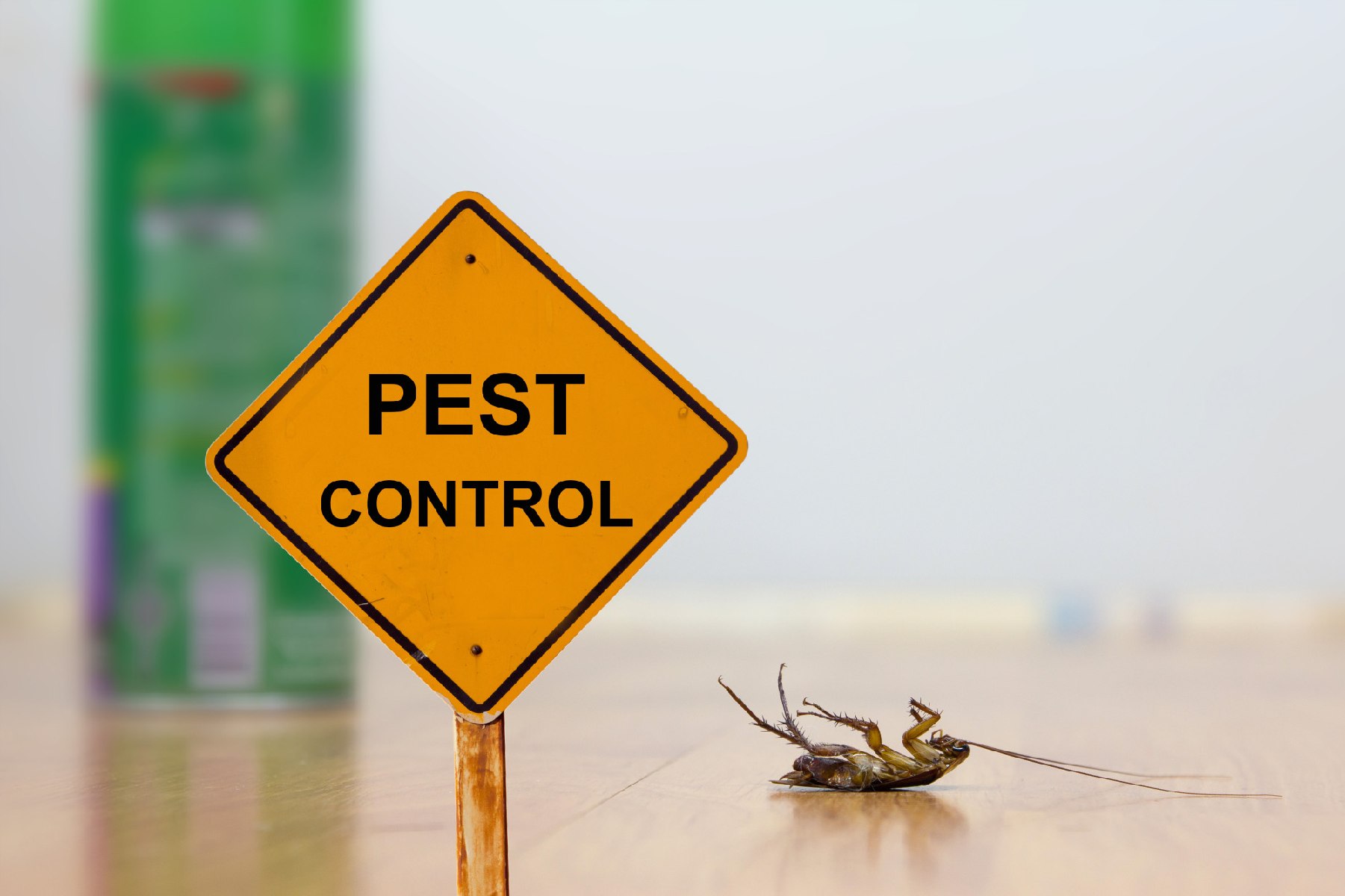Guaranteed Pest Control in Port Charlotte with proven results.
Wiki Article
Discovering Innovative Strategies and Products for Reliable Parasite Control
The landscape of parasite control is evolving, noted by the introduction of innovative methods and products made to boost effectiveness and sustainability. From smart catches furnished with sophisticated tracking systems to organic approaches that employ all-natural killers, these developments offer a paradigm shift in exactly how we approach pest management. Additionally, environment-friendly chemical choices and pheromone disruption approaches use targeted services that line up with ecological stewardship. As the sector faces these advancements, a closer assessment exposes not just their ramifications however likewise the possible obstacles that might emerge in their application.Smart Traps and Monitoring Systems
Exactly how can contemporary technology enhance bug management? One considerable development is the development of smart catches and keeping track of systems, which provide real-time information and analytics for reliable pest control. These systems make use of sensors and cordless technology to spot insect task, alerting residential property managers and bug control experts to problems prior to they rise.Smart catches are furnished with attributes such as lure terminals that bring in insects and record them successfully. These traps can be kept an eye on from another location, permitting timely interventions and lessening the need for considerable chemical applications. The integration of machine knowing algorithms enables these systems to set apart between target insects and non-target varieties, boosting the accuracy of bug control procedures.
In addition, the data collected from wise traps can be assessed to recognize patterns in bug habits and environmental elements adding to infestations (Pest Control in Port Charlotte). This information is indispensable for creating targeted pest administration techniques customized to details atmospheres. By embracing smart traps and monitoring systems, bug control experts can improve their operational performance and lower the eco-friendly influence of insect monitoring, inevitably bring about safer and a lot more sustainable practices in the market
Biological Parasite Control Methods
Making use of natural predators and bloodsuckers, biological parasite control techniques supply an eco-friendly option to chemical treatments. This technique entails the intro or enhancement of details organisms that can normally regulate bug populaces, thereby minimizing dependence on synthetic pesticides. Usual examples include making use of ladybugs to regulate aphid invasions and parasitical wasps to target caterpillars.
Biological control can be classified into 3 major methods: timeless, augmentative, and preservation. Classical organic control entails importing all-natural adversaries from the bug's native environment, while augmentative control includes increasing the population of existing all-natural enemies through launches. Preservation strategies concentrate on creating problems that sustain these useful organisms in the environment.
It frequently calls for a thorough assessment of insect dynamics and the life cycles of both the parasites and their natural adversaries. As recognition of environmental issues grows, biological parasite control methods are progressively acknowledged for their sustainable role in integrated parasite monitoring programs.
Eco-Friendly Chemical Alternatives
Eco-friendly chemical options give a practical solution for insect monitoring that decreases environmental impact while efficiently managing insect populaces. These choices are originated from natural resources and are very carefully developed to target details parasites without damaging beneficial microorganisms, making them an essential element of sustainable insect control approaches.Amongst one of the most efficient environmentally friendly choices are plant-based insecticides, such as neem oil and pyrethrin, which are originated from the seeds and flowers of numerous plants. These materials interrupt the life cycles of bugs, minimizing their populations without the toxic results related to conventional pesticides - Pest Control in Port Charlotte. Additionally, crucial oils like pepper mint and clove oil exhibit repellent residential properties, better improving their energy in insect management

In addition, environment-friendly chemical options usually break down quicker in the atmosphere, decreasing the danger of dirt and water contamination. This particular aligns with the enhancing customer need for sustainable practices in farming and city pest control. As research remains to breakthrough, the advancement of ingenious environment-friendly solutions will further boost efficiency and expand application areas, enabling pest management experts to embrace greener, a lot more responsible methods in their methods while securing human health and the setting.
Pheromone Disruption Techniques
An additional cutting-edge strategy in sustainable bug monitoring is making use of scent interruption techniques. These approaches manipulate the all-natural chemical signals, or pheromones, that bugs use for interaction, especially in breeding habits. By interrupting these click for source signals, parasite populaces can be properly handled without resorting to damaging chemicals.Scent traps are typically used in this technique. These traps use synthetic variations of insect scents to entice male insects, thereby decreasing their ability to find females and reproduce. Gradually, this can result in a substantial decline in pest populaces. Furthermore, the release of repellent scents can produce complication amongst insects, further hindering their mating procedures - Pest Control in Port Charlotte.

Integrated Insect Monitoring Methods
Reliable insect control usually calls for a detailed technique, and read Integrated Insect Administration (IPM) methods supply a structure for attaining this objective. IPM integrates numerous administration techniques click to read to decrease parasite populations while minimizing reliance on chemical pesticides. This multifaceted method begins with comprehensive monitoring and identification of bugs, enabling targeted treatments based upon specific insect pressures.Cultural methods, such as plant rotation and sanitation, play an important function in stopping pest establishment. Organic controls, consisting of all-natural killers and parasitoids, are used to keep parasite populaces at convenient degrees. When essential, selective chemical treatments are applied, emphasizing lower toxicity to non-target species and the environment.
By utilizing this all natural technique, IPM not only improves bug control performance yet also adds to long-lasting ecological equilibrium. Inevitably, Integrated Insect Administration represents a forward-thinking option that aligns agricultural efficiency with environmental stewardship, making it essential in modern insect control approaches.

Final Thought
To conclude, the assimilation of ingenious techniques and products for reliable bug control represents a substantial advancement in sustainable insect administration. Smart catches and keeping track of systems, organic pest control approaches, environmentally friendly chemical options, and scent interruption strategies jointly enhance the performance of pest management techniques. By taking on these approaches, the dependence on conventional chemicals can be lowered, promoting environmental health and wellness while making certain efficient pest control. Continued research study and advancement in these areas will even more boost insect administration techniques.Report this wiki page